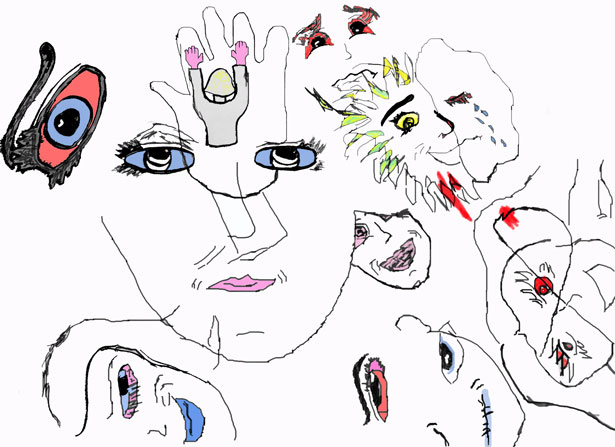|
As a life coach, I’m all about the positive aspects of life: enjoying it, being productive, feeling grateful, etc. At the same time, there is a place for feeling sad, angry, frustrated, etc. I’ve made it my mission to help people get the most out of their life, overcome the negatives, increase positives, meet their goals, and make the changes they need. At the same time, people need to know that it is okay to feel down sometimes. It is normal to feel angry sometimes. It is okay to have negative feelings and be in a “lull” at points. You do not need to feel happy all of the time. Part of being human is experiencing both happiness and sadness.
If it is normal to feel sad, angry, etc—and it is “okay,” then how do you know when feeling those feelings are part of the typical negative feelings that accompany life versus something that need more attention? When do negative feelings cross over from experiencing them as a healthy part of the human condition to not serving you and benefiting from an adjustment? How do you know you’re feelings aren’t a flag for getting extra help or learning new skills?
You’re allowed to have a few crappy weeks and be in a bad mood. It’s part of life. Of course, there are ways to make those weeks feel better, but do not pressure yourself by believing that you always have to be 90% in the best mood. Life is full of ups and downs. It’s okay to feel sad or angry. Embrace it. Cope with it. Learn from what those feelings are communicating. Pick yourself up by your bootstraps. Don’t pressure yourself by thinking you *need* to feel happy. Of course being happy feels better, but negative feelings can have as much value in our lives as positive feelings. Learn how to accept, express, cope, and work with your feelings—positive and negative—so they benefit you.
1 Comment
When we start something—a relationship, a job, a project, anything—we typically do so with purpose and intention. As an example, I recently started Paragon Life Coaching LLC with the purpose of doing something I love and giving back. Since I’m doing life coaching as my career, it is also important that I am able to earn a sustainable income. After we start anything, we are "in" it. We experience it almost every day (or at least frequently), and we have a bidirectional relationship with it. A “bidirectional relationship” means that we do whatever we do with our something-we-started, and then there is a consequence, so we respond. We do whatever we do with our something, and we learn new info as a result, so our thoughts or conceptualization related to our something change. We influence the something we are involved with, and that something influences how we continue to interact with it. I’m characterizing these aforementioned kinds of interactions as a bidirectional relationship, since influences go both ways. When we are “in” something, experiencing it regularly and interacting with it, even inundated by it sometimes, it is easy to lose that perspective we had at the beginning. It is very easy to lose objectivity. We are pushed and pulled by the experience. This is not good or bad, it just is. Without `truly engaging with what we are involved in, we wouldn’t learn, we wouldn’t improve, we wouldn’t make progress, we wouldn’t revise, and we wouldn’t have the emotional rewards. At the same time, when we are “in” something, especially if we experience intense emotions or are unfamiliar with aspects of whatever we are “in,” we are vulnerable to losing sight of the big picture—why we started and what we want from it. It’s easy to get lost when we are finding our way in an unfamiliar maze or lose perspective when we are affected by deep feelings. For instance, with starting a life coaching business, I know psychology extremely well and am a skilled helper, so the work of helping people to create meaningful change in their lives is smooth sailing. It’s what I love. The business aspect of starting a business is foreign territory. I never even had a business 100 course. I am learning as I go, using the resources I find, experimenting, consulting with others who have business experience, watching webinars, etc. To continue with my example, I have absorbed info during the past few months from many sources and much of it has focused on scalability (growing your business, reaching thousands and thousands of people, etc). Almost every message about business pretty much boils down to scalability. Apparently, it’s the Holy Grail in business. I’ve been racking my brain the past couple of weeks about how I’m going to reach the people I’m going to help, how I can make enough money to sustain myself so I can do what I what I want to do—keep doing life coaching, how I’m going to reach the masses, how I can “scale” my business, how I can create successful webinars and pull in thousands of dollars... HOLD UP!!! I realized three days ago my thoughts: “how I’m going to reach the masses,” “how I can make thousands from webinars." I was trying to problem-solve when, in the midst, these thoughts sort of smacked me across the face (thankfully!). THOSE ARE NOT THE REASONS I STARTED! I had been a little brainwashed: this mega superstar life coach who wants to reach 1 million women, that ridiculously successful tech person who wants to reach 100,000 people to make incredible webinars, the dozens of authors for business publications of authority who preach scalability, several “how to make your first webinar and bring in 6 figures” webinars, etc. They had gotten to me. I had gotten lost in foreign territory.
First, I was surprised my attention was so easily swayed from my intention to the dogma of the business community. It happened over the course of several months, so it was slow. Slow things creep; they’re more difficult to see happening. However, being surprised was not my strongest feeling. I felt empowered: I was reconnected with my intention. My goal is not to make 6 figures (it would be nice, but it’s not what I want). My goal is not to reach 100,000 people. My goal is not to have a slew of webinars to choose from so I can be on the beach, hit a button, and remotely bring in thousands as I enjoy the surf. Knowing what you don’t want can be as important as knowing what you do want. It is way too easy once you are “in” something, to be swayed by what you are “in.” What do I want? I want to help individuals make meaningful changes in their lives—this is my passion, so this is my goal. I want to witness the impact of the change individuals make and I want to experience the fulfillment of being part of that step-by-step growth process; you don't get that by reaching 100,000 people. And, yes, I want to be able to support myself financially so I can make a career of doing that. Scalability is not my business; making gobs of money is not my intention. Personal interactions with people and deep change is my work. Can I add on some webinars, group coaching, and publications to better educate people? Of course! But it is not my main squeeze. So, when you step back, what do you want? What did you want when you started? How has that changed, if at all? I do not want my message to be misunderstood: it is okay to change what we want in the middle of being “in” something. Flexibility and being responsive to what we glean from interactions in a bidirectional relationship is important. However, we must change our path mindfully—we must do so with awareness and intention.  We all have our strengths and areas for improvement. We all have our needs (and wants). Any of these change, from minute to minute to time periods during our lifespan. Go after what you want. I fervently believe you should. At the same time, you will only best serve yourself when what you want complements what you need. If you’re pursuing what you want when it interferes with what you need, you will do yourself harm, and the benefit of what you want will be lost, likely replaced by pain, disappointment, wasted energy, etc. (This is not known fact; this is a hypothesis of mine. Challenge it, try it on with different scenarios, see if it fits. It has passed my tests so far. Let me know what you think.) If what you want is at odds with your current needs or where you are at this point, do not give up on your want! DO NOT! Is there another way to satisfy your want? Can you “backburner” your want until your want and needs are aligned? So much of life is timing. Very little in life requires the immediacy we often assign it. Know your needs: know what you need at this time in your life. Know what you want. Be aware enough to know the difference, smart enough to know which needs and wants align, and disciplined enough to choose to pursue those wants which complement your needs now. Even John Rampton, contributor to Forbes and Entrepreneur, recognizes in his recent article* that “discipline…is the most challenging part” of budgeting. All of the financial knowledge and expertise in the world will not help you manage your money if your thoughts and behavior get in the way. As a life coach, my expertise is clearly not with stocks, finance management, etc. My expertise gives you the tools and skills to foster discipline, excel with decision making, manipulate your environment so it is conducive to engaging in behaviors that move you closer to your goal, and develop thoughts in-the-moment that align with your goal—which any financial growth hinges upon.
Aside from teaching strategies and supporting skill development, a life coach collaborates with the client to develop an individualized behavior plan based on a specific budgeting or financial goal (not just “I’m going to save $x a day and not spend money on y”); a person’s success is highly contingent on a quality behavior plan. Clearly, if a person is having challenges with discipline, then adhering to a behavioral plan will likely be challenging, too. As a specialist in behavior, emotions, and cognition, I don’t just create any behavior plan, but I consider habits, motivation, challenges, lifestyle, strengths, and personality. Any behavior plan I develop is constructed in a collaborative nature, *realistic,* and designed specifically for the individual, which is how it can be effective—despite challenges. If financial management and adhering to a budget is a goal that you’ve had but consistently aren’t meeting, it might not mean that you have an unrealistic goal, but may indicate that you need something more to reach your goal. That “something more” is a skill set and approach that a competent life coach can provide. *"For a Debt-Free New Year Set a Budget and Stick to It" on Entrepreneur.com posted December 22, 2015 |
AuthorAshley Belsinger, M.S. Archives
August 2020
Categories |
|
Warehouse 210 210 West Grant Street Lancaster, PA 17603 |
PARAGON Life Coaching
It's time to build your best life
©2023 All Rights Reserved
It's time to build your best life
©2023 All Rights Reserved



 RSS Feed
RSS Feed